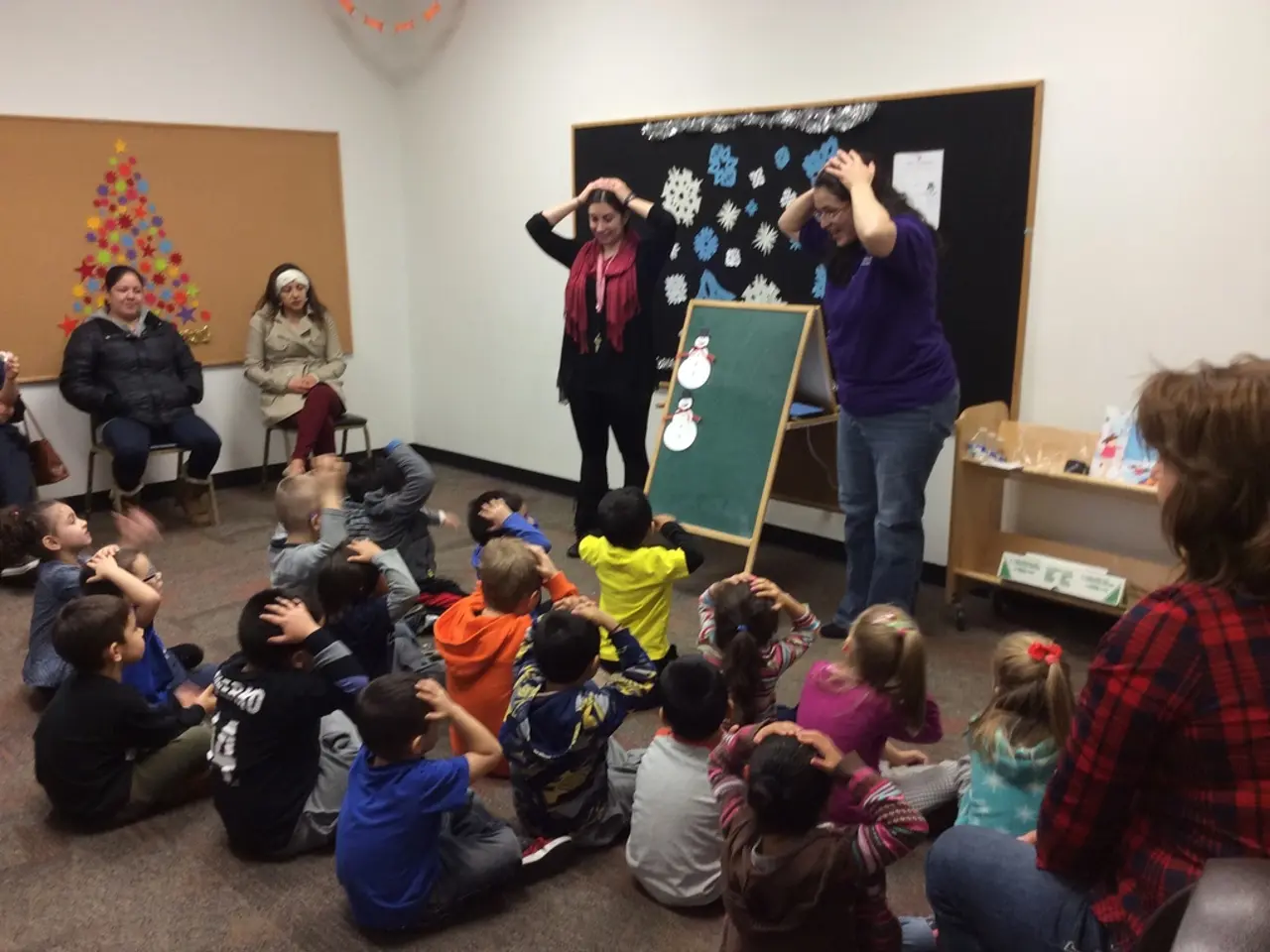Improving Student Achievement by Involving Parents in Academic Endeavors
In today's educational landscape, there is a growing emphasis on training teachers to engage families effectively, fostering stronger partnerships between parents and educators. This shift is paving the way for a more collaborative educational environment.
One of the key developments in this area is the increased use of virtual parent-teacher conferences. These conferences allow parents who may find it challenging to attend events in person to participate fully in discussions about their children's education.
Workshops on educational tools are another valuable resource for parents. These sessions provide parents with practical skills that enhance their engagement in homework, helping to bridge the gap between school and home.
Recognising and celebrating parental contributions is crucial in creating a positive school environment. Quarterly recognition events or newsletters that highlight parental involvement can help inspire further engagement from parents.
Effective communication strategies are essential in fostering a collaborative educational environment. Schools should establish clear, consistent, and multi-channel communication, using diverse platforms such as emails, newsletters, phone calls, text messages, social media, and more. This ensures accessibility and clarity for all parents.
Maintaining a warm, positive, and welcoming tone is also important. Communication should highlight positive developments, celebrate student achievements, and foster trust and enthusiasm.
Two-way communication and active listening are key components of effective parent-teacher communication. Teachers should not only disseminate information but also actively listen to parents’ insights and feedback, valuing their unique perspectives on their child’s needs and experiences.
Structured and collaborative parent-teacher meetings are also crucial. These meetings should focus on students’ progress, challenges, and strategies, with both parties approaching them as partners, working towards shared goals for the child’s success.
Empowering parents through education and involvement is another effective strategy. Offering workshops or resources to help parents understand curriculum, teaching methods, and how to support learning at home fosters a stronger partnership and boosts parental confidence.
Inclusivity and accessibility are also vital considerations. Communication should be culturally and linguistically inclusive, using translation tools when necessary and accommodating diverse family backgrounds to ensure all parents feel welcomed and involved.
Regular updates about school events, student progress, and learning opportunities keep parents engaged and reduce surprises or misunderstandings. Mobile apps and messaging services can streamline these updates, making information more accessible.
Social media is being incorporated into school engagement strategies, fostering a community feel and inviting parents to contribute actively. Leveraging community resources, such as collaborating with libraries, museums, and youth organizations, also enhances engagement among parents in education.
Effective collaboration between educators and parents can lead to improved student outcomes. Regular updates, constructive feedback, and workshops on educational tools provide parents with essential resources to support their children's learning at home, fostering a collaborative approach between home and school.
In conclusion, by implementing these best practices, schools can build trust, encourage collaboration, and create a supportive educational environment where parents and teachers share responsibility for students’ learning and development, ultimately leading to improved academic performance and a stronger sense of community.
- To further support their child's education and the school community, parents can attend educational and self-development workshops, focusing on acquiring practical skills for effective homework assistance and partnering with teachers.
- Integrating e-learning resources and general news updates in the education-and-self-development sections of school websites can help expand parents' awareness of the latest educational trends and modern lifestyle, promoting a positive and inclusive learning environment.




